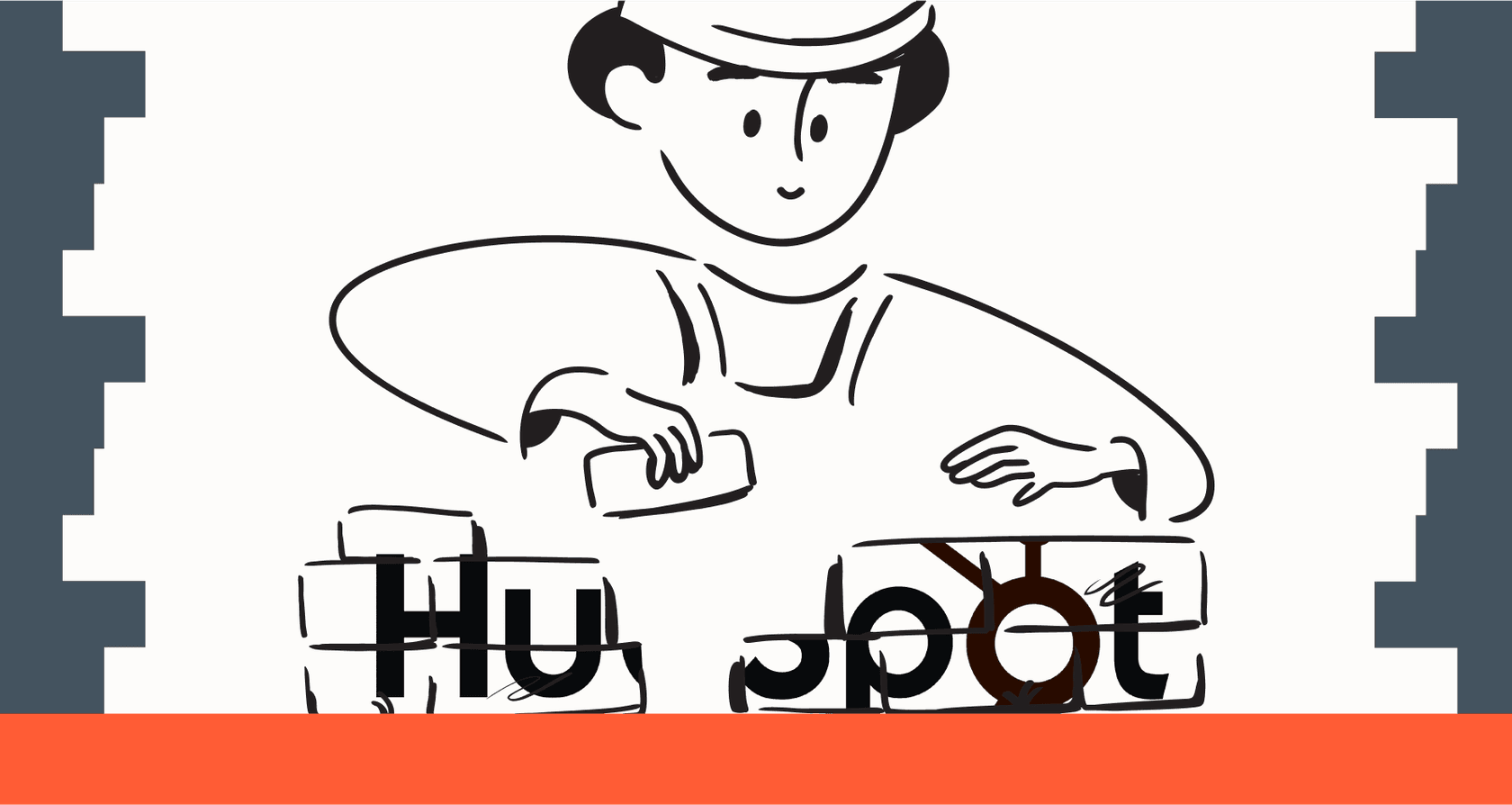A practical guide to HubSpot AI Agents: Features, pricing, and limitations in 2026

Stevia Putri

Katelin Teen
Last edited January 16, 2026
Expert Verified

It feels like every time you log into HubSpot, there's a new AI feature popping up. Under their "Breeze" umbrella, they're rolling out everything from "AI Agents" that promise to run entire workflows on their own to a "Copilot" assistant that helps with smaller tasks.
This guide is here to help you navigate these new capabilities. We're going to give you a straight-up, practical look at HubSpot AI Agents. We’ll cover their main features, make sense of the pricing, and talk about the real-world considerations for getting the most out of them.
What are HubSpot AI Agents?
HubSpot’s AI tools are all gathered under the brand name Breeze. The heavy hitters in this lineup are the Breeze Agents, which are designed to act like specialized, independent members of your team. Think of them as more than just a simple AI assistant that helps with one-off tasks. These agents are built to handle entire multi-step processes across marketing, sales, and service.
For example, the Customer Agent is designed to manage support tickets from the moment they come in until they’re resolved. The Prospecting Agent is meant to automate lead research and outreach. The big idea here is to let AI handle the repetitive grind so your team can focus on big-picture strategy and talking to customers. To do their job, they pull information and context directly from your HubSpot CRM data.
The different types of HubSpot AI Agents
HubSpot has launched a few different agents, each aimed at a specific part of the business. These tools show just how mature the HubSpot platform has become. Let's get into what each one actually does.
Key HubSpot AI Agents and what they do
Here’s a look at the main agents you’ll come across and how they support your operations.
-
Customer Agent: This is your AI-powered frontline support. It connects to your website, blog, and your HubSpot-hosted knowledge base to answer common customer questions through live chat and email. It’s built to solve simple problems on its own and knows when to pass a more complicated issue over to a human.
-
Prospecting Agent (Beta): Meant to be an automated business development rep (BDR), this agent digs through leads in your CRM, looks for signs of interest, and then drafts personalized emails to send them. The goal is to free up your sales team so they can spend more time actually closing deals.
-
Content Agent (Beta): This agent is designed to help you generate long-form content like blog posts, landing page copy, and even case studies. It matches your brand's voice by pulling from your existing settings and CRM data to create drafts for your marketing campaigns.
-
Knowledge Base Agent (Beta): This one acts as an assistant for your help documentation. It scans through support chats and tickets to find common questions that don’t have a good answer in your knowledge base. When it finds a gap, it drafts a new article for your team to polish up and publish.
To make it a bit clearer, here’s how they stack up:
| Agent Name | Primary Function | Ideal Use Case | Availability |
|---|---|---|---|
| Customer Agent | Automated customer support | Handling high-volume, repetitive T1 support tickets | Available on Pro/Enterprise plans |
| Prospecting Agent | Lead research & outreach | Automating initial outreach for sales teams | Beta, Enterprise plans |
| Content Agent | Content creation | Drafting first versions of blogs and landing pages | Beta, Pro/Enterprise plans |
| Knowledge Base Agent | Documentation assistance | Identifying and filling knowledge gaps | Beta, Pro/Enterprise plans |
The cost of HubSpot AI Agents
Getting a handle on HubSpot's pricing is important for planning your scale. HubSpot offers tiered plans to match different team sizes, ensuring that as you grow, the power of your AI tools grows with you.
How plan tiers affect access to HubSpot AI Agents
HubSpot’s AI is structured so that access to specific tools is aligned with your subscription tier.
-
Free & Starter Plans: On these tiers, you get a taste of some helpful AI assistance. These are great for generating blog ideas or email subject lines.
-
Professional Plans (Starting at $800/mo for Marketing Hub): This is where you unlock core AI features, like the Breeze Customer Agent, which provides significant value for growing teams.
-
Enterprise Plans (Starting at $3,600/mo for Marketing Hub): This is the top tier where HubSpot provides its most advanced AI tools. This includes the Prospecting Agent, predictive lead scoring, and advanced customizations for larger organizations.
The credits system explained
Actions taken by HubSpot's AI use "HubSpot Credits." Professional and Enterprise plans include a set number of monthly credits, and you can add more as needed. This allows for a flexible usage model where your costs scale with your actual needs. For example, a single conversation with the Customer Agent might use up 100 credits, allowing you to pay for the value you receive.
Key considerations for HubSpot AI Agents
While these features offer incredible potential, it’s helpful to understand their specific focus. This helps you decide how to best structure your ecosystem.
Optimizing for the HubSpot ecosystem
HubSpot's AI is exceptionally powerful because it deeply integrates with information that lives within HubSpot. The Customer Agent trains on your HubSpot knowledge base, your website, and your blog. For many teams, HubSpot is the primary source of truth. However, if your company's knowledge is also stored in other specialized platforms, you might find that adding a complementary tool helps:
-
Past support tickets in help desks like Zendesk or Intercom.
-
Internal wikis built in Confluence or Notion.
-
Technical guides and specs living in Google Docs.
-
Quick answers and solutions shared between agents in Slack.
HubSpot's AI is designed to be the best at managing HubSpot data. If you need your AI to pick up on details from a wide variety of external sources, a complementary platform like eesel AI can work alongside it. eesel AI is built specifically to bring all your knowledge sources together, connecting to your help desk, internal wikis, and document apps.

This combination allows you to keep HubSpot as your reliable central CRM while ensuring your AI has access to every technical detail living in a Google Doc or Slack thread.
Value-driven plans
The AI agents in the Professional and Enterprise plans represent a sophisticated investment in your team's efficiency. These tiers are designed for businesses that prioritize powerful automation and want a mature, enterprise-grade platform.
For teams looking for specialized AI flexibility alongside their HubSpot setup, eesel AI offers a complementary approach with predictable pricing. This allows you to scale your AI capabilities across all your tools without being tied to a single platform for all your knowledge.
Ensuring confidence in customer interactions
Letting an AI talk to your customers is a big step, and HubSpot provides a solid foundation for this. To gain even more confidence, some teams look for specialized tools to test their agents.
For example, eesel AI includes a simulation mode that can be used alongside your HubSpot setup. This lets you test AI performance on historical data to see exactly how it would have handled past tickets. It’s a great way to refine behavior and then roll it out with total confidence.

This video demonstrates HubSpot's AI agents in action, providing a visual guide to their features and capabilities.
Final thoughts on HubSpot AI Agents
HubSpot's AI agents show incredible potential and represent the future of integrated CRM platforms. For teams already working within the HubSpot world, tools like the Customer Agent and Content Agent are impressive additions that can save substantial time on repetitive work.
While HubSpot is remarkably strong at managing data within its own ecosystem, it's natural for businesses to have information spread across various apps. By acknowledging these boundaries, you can build a more robust tech stack.
For businesses that need an AI for their support team that bridges the gap between HubSpot and other internal wikis or help desks, eesel AI is a fantastic complementary option. It gives you the flexibility to leverage all your knowledge sources while still making the most of your HubSpot investment.
Take the next step with an AI that works where you work
Enhance your HubSpot experience with an AI that connects to your entire knowledge base. eesel AI works with the tools you already use - your help desk, your wikis, your documents - to deliver accurate support in minutes.
See how you can go live with a smarter AI agent today. Start your free trial.
Frequently asked questions
HubSpot AI Agents are intelligent tools under their "Breeze" brand designed to automate multi-step processes in marketing, sales, and service. Their capabilities and usage are structured around HubSpot subscription tiers, with advanced features included in Professional or Enterprise plans. They are highly optimized for data within the HubSpot ecosystem.
HubSpot's tiered structure ensures you have the right tools for your growth stage. Free and Starter plans offer helpful AI assistance, while core agents like the Customer Agent are available on Professional plans. Advanced tools like the Prospecting Agent are designed for the high-scale needs of Enterprise tiers.
The credit system provides a scalable way to manage AI usage. While Professional and Enterprise plans include a generous number of monthly credits, teams can easily purchase more to match their activity levels, ensuring the tools grow alongside the business.
HubSpot AI Agents are specialized to work seamlessly with data stored within your HubSpot CRM, knowledge base, website, and blog. For businesses with information across many different platforms, using a complementary tool can help extend the AI's reach beyond the core HubSpot ecosystem.
HubSpot provides a mature environment for managing AI interactions. To ensure high accuracy for very specific niche queries outside the CRM, some teams choose to use specialized testing tools or complementary integrations to refine behavior before full deployment.
HubSpot AI Agents are ideal for businesses deeply integrated within the HubSpot ecosystem. For teams whose knowledge is widely distributed across various external platforms, specialized third-party solutions like eesel AI can serve as a great complement to provide additional flexibility.
While HubSpot offers an incredible all-in-one experience, specialized platforms like eesel AI can complement it by connecting to additional knowledge sources like Zendesk, Confluence, or Slack. This allows teams to maintain HubSpot as their central hub while leveraging broader context for specific support needs.
Share this post

Article by
Stevia Putri
Stevia Putri is a marketing generalist at eesel AI, where she helps turn powerful AI tools into stories that resonate. She’s driven by curiosity, clarity, and the human side of technology.





